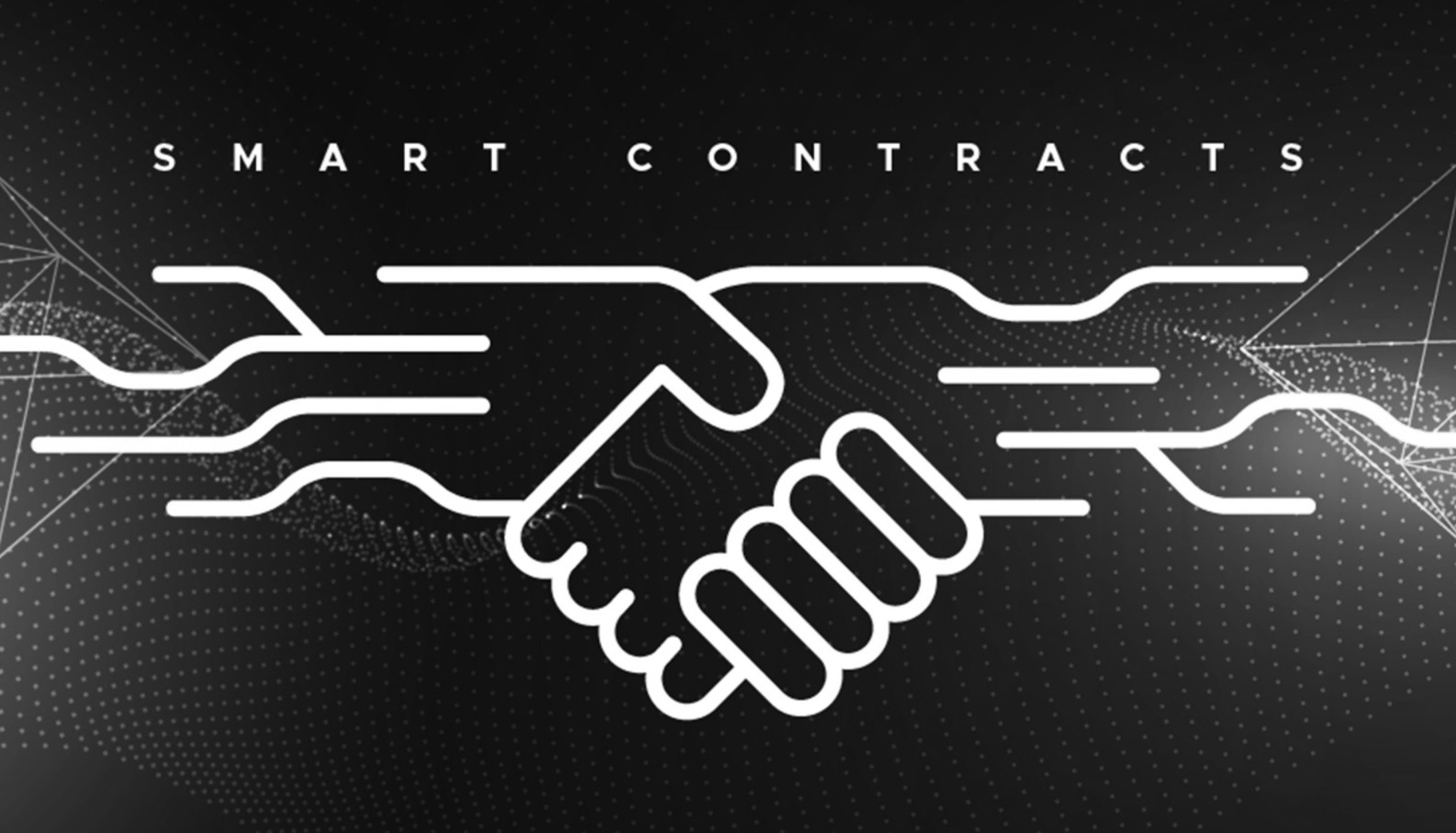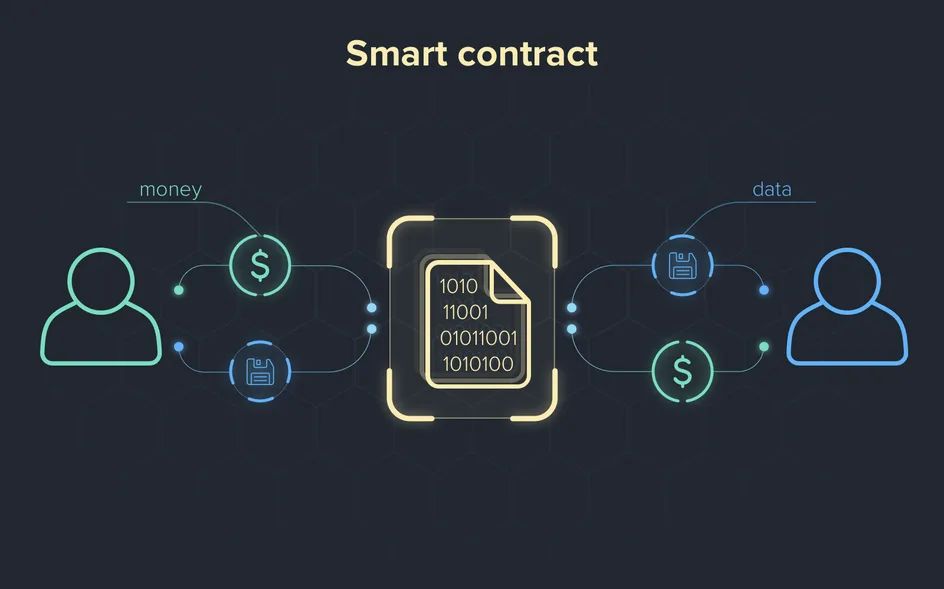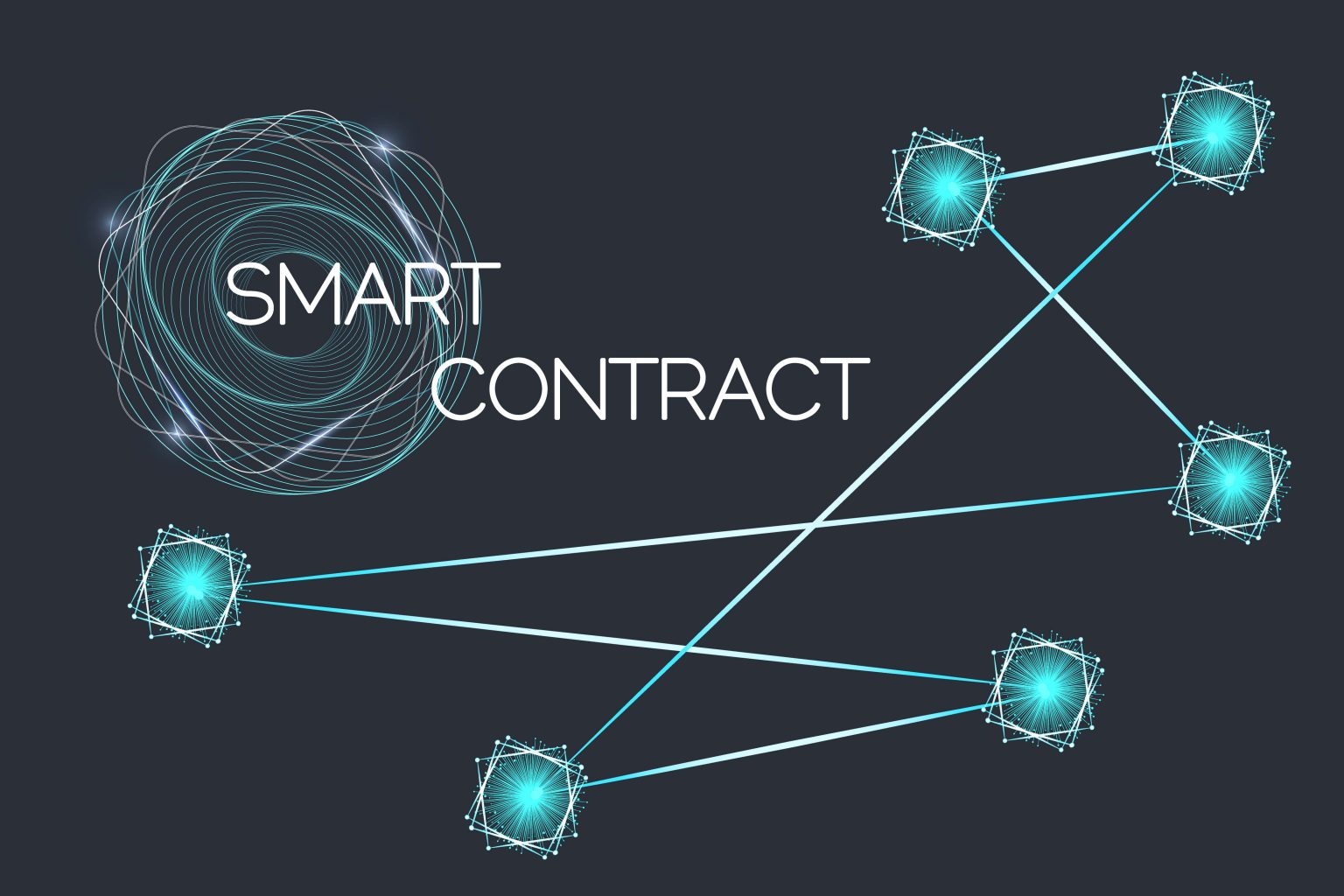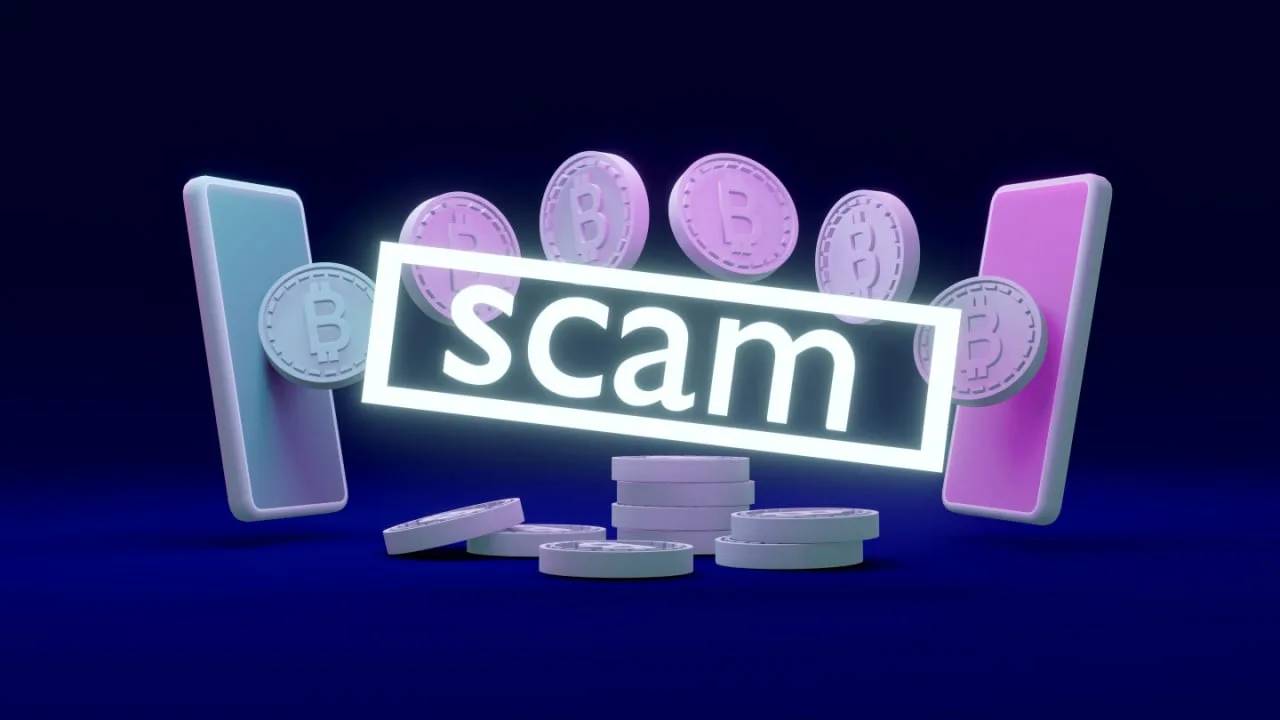Understanding What are Smart Contracts and Their Impact on the Future of Technology

The realm of digital transactions is evolving rapidly, guided by innovative solutions that promise efficiency and security. Central to this transformation are self-executing agreements that pave the way for a new era of trust and automation. These advancements not only streamline processes but also foster a decentralized approach, reimagining how interactions occur in various sectors.
As the landscape becomes increasingly complex, grasping the essence of these self-implementing frameworks is crucial. They serve as a cornerstone for numerous applications, enabling seamless exchanges without the reliance on intermediaries. By examining the core principles that govern these frameworks, one can appreciate their role in shaping the future economic and operational landscapes.
The implementation of such agreements brings forth a myriad of possibilities, as they allow parties to engage in transactions with assured conditions and outcomes. This newfound feature not only reduces the potential for disputes but also enhances efficiencies across different industries, from finance to supply chain management. Consequently, the emergence of these innovations marks a significant shift in how digital interactions are conducted.
What Are Smart Contracts?
These automated protocols facilitate the execution of agreements in a decentralized environment. By eliminating intermediaries, they ensure that transactions are processed efficiently and securely, allowing participants to interact directly with one another while relying on self-executing conditions.

Typically, these protocols are embedded within decentralized ledgers, enabling a wide range of applications across various industries. The primary advantage lies in their ability to minimize human error and enhance trust among users.
| Feature | Description |
|---|---|
| Automation | They execute automatically when predefined conditions are met. |
| Transparency | All participants can verify the terms and execution process. |
| Security | They utilize cryptographic techniques to ensure integrity. |
| Efficiency | Reduce the time and costs associated with traditional methods. |
The development of these automated protocols represents a significant shift in how agreements are formed and executed, promising to revolutionize various sectors by providing a more reliable framework for transactions.
How Smart Contracts Function in Blockchain
These digital agreements operate autonomously within decentralized networks, executing transactions based on predefined conditions. The functionality hinges on code that is imbedded into the digital ledger, allowing for seamless execution without the need for intermediaries.
Every transaction related to these programmable agreements is recorded on the distributed ledger, ensuring transparency and immutability. This minimizes the risk of manipulation and fosters trust among parties involved. The following table outlines the key components involved in their operation:
| Component | Description |
|---|---|
| Chain Code | The underlying programming that defines the rules and logic of the agreement. |
| Triggers | Conditions that initiate the execution of the agreement. |
| Nodes | Participants in the network that validate and record transactions. |
| Consensus Mechanism | A process that ensures all nodes agree on the validity of the transactions. |
The reliability of these digital agreements stems from the decentralized nature of the network, as alterations require unanimous consent among participants, enhancing security and reducing the likelihood of fraud. These attributes contribute to an efficient, trustless exchange system.
Applications of Smart Contracts Today
In recent years, programmable agreements have found numerous applications across various sectors, demonstrating their versatility and efficiency. By enabling automated processes, these autonomous protocols streamline operations and foster trust among participants. The innovative use of such agreements is reshaping business practices and offering new solutions to traditional challenges.
Key Sectors Utilizing Automated Agreements
- Finance: Automation of lending and borrowing, facilitating decentralized finance (DeFi) solutions.
- Real Estate: Simplifying property transactions and reducing paperwork through digital ownership records.
- Supply Chain: Enhancing traceability and accountability in product journeys, from origin to consumer.
- Healthcare: Managing patient consent and secure sharing of medical records while preserving privacy.
- Entertainment: Automating royalty payments and protecting intellectual property rights in the digital space.
Benefits of Implementing Automated Protocols
- Greater efficiency by minimizing manual intervention and errors.
- Increased transparency, allowing all parties to verify and audit transactions easily.
- Enhanced security, reducing the likelihood of fraud and unauthorized access.
- Lower costs by eliminating intermediaries and streamlining processes.
- Improved speed, enabling rapid execution of agreements without delays.
The ongoing exploration of these digital agreements across various fields indicates a promising future where they could significantly alter conventional operational structures, providing real-time, reliable solutions to complex problems.

Benefits of Implementing Smart Contracts
The integration of automated agreements into various sectors brings a multitude of advantages that enhance operational efficiency and reliability. By employing these self-executing agreements, organizations can streamline processes, reduce costs, and improve trust among participants.
| Advantage | Description
|
|---|---|
| Increased Efficiency | Automation minimizes the need for intermediaries, which accelerates transactions and reduces the likelihood of human error. |
| Cost Reduction | Elimination of middlemen and reduced administrative expenses contribute to significant cost savings for businesses. |
| Enhanced Security | Utilizing cryptographic techniques ensures that agreements are tamper-proof and confidential, thereby safeguarding sensitive information. |
| Transparency | Every participant can access the code and terms of the agreement, fostering an environment of trust and accountability. |
| Improved Accuracy | Elimination of manual input reduces the chances of errors, ensuring that terms are executed as intended without discrepancies. |
Challenges Facing Smart Contract Adoption
The implementation of automated agreements within distributed ledger systems presents several hurdles that may slow down their broader acceptance. Numerous factors contribute to reluctance in utilizing these digital frameworks, including legal uncertainties, technical complexities, and security vulnerabilities. Understanding these challenges is essential for stakeholders aiming to harness the benefits of this innovative approach.
| Challenge | Description |
|---|---|
| Legal Uncertainty | The regulatory landscape for decentralized agreements is still evolving, leading to confusion regarding enforceability and compliance with existing laws. |
| Technical Complexity | The development and deployment of automated agreements require specialized knowledge, making it difficult for non-experts to engage with the technology. |
| Security Risks | Flaws in the coding of automated agreements can lead to vulnerabilities, exposing users to potential financial losses and unauthorized access. |
| Interoperability Issues | Various platforms and protocols may not be compatible, hindering seamless integration and collaboration across different systems. |
| Cultural Resistance | Established industries may resist transitioning to automated solutions due to fear of change or skepticism regarding the reliability of new technologies. |
Addressing these challenges is crucial for promoting the effective use of automated agreements in various sectors. By creating clearer regulations, enhancing security measures, and simplifying technical aspects, the path towards widespread adoption can be paved.
The Future of Smart Contracts in Industry
The evolution of automated agreements is poised to revolutionize various sectors. As industries increasingly embrace digitization, these unique protocols promise enhanced efficiency, reduced costs, and improved transparency. The integration of such tools offers numerous advantages, paving the way for innovative applications across multiple domains.
In upcoming years, we can expect the following trends to shape the landscape:
- Enhanced Automation: As algorithms become more sophisticated, the role of automation in transaction processes will expand, minimizing manual intervention.
- Interoperability: Systems will evolve to facilitate seamless interactions across different platforms, creating a cohesive ecosystem for users.
- Increased Security: Advanced cryptographic techniques will bolster the security of these protocols, instilling greater confidence among users and businesses.
- Regulatory Frameworks: Governments will likely implement clearer regulations, ensuring a safer environment for businesses adopting these innovative solutions.
Industries such as finance, supply chain management, healthcare, and real estate stand to benefit significantly from this technological advancement. By simplifying complex procedures and reducing reliance on intermediaries, organizations can optimize their operations.

Ultimately, as these innovative protocols become more widely accepted, their capabilities will continue to expand, transforming traditional business practices and fostering a new era of digital collaboration.
Q&A: What are smart contracts
What are smart contracts, and how do they work?
Smart contracts are self-executing contracts with the terms of the agreement directly written into code. They operate on blockchain technology, which ensures transparency and immutability. When predefined conditions are met, the smart contract automatically executes the relevant actions without the need for intermediaries. For example, a smart contract can facilitate the transfer of ownership of a digital asset once payment is received. This eliminates the need for trust between parties, as the contract’s execution is guaranteed by the blockchain’s consensus mechanism.
What are the benefits of using smart contracts in various industries?
Smart contracts offer numerous benefits across multiple industries. They enhance efficiency by automating processes, which reduces the time and costs associated with traditional contract execution. For example, in real estate, smart contracts can automate the transfer of property titles, streamlining transactions. Additionally, they provide increased security, as blockchain technology makes it extremely difficult to alter contract terms once executed. Moreover, smart contracts enhance transparency, allowing all parties to verify the contract’s status in real-time, which fosters trust among participants.
What challenges do smart contracts face in real-world applications?
Despite their advantages, smart contracts face several challenges in real-world applications. One major issue is the difficulty of coding complex legal agreements accurately, which can lead to unintended consequences if executed incorrectly. Moreover, smart contracts rely on external data, or oracle services, to trigger actions based on real-world events. If those data sources are compromised, it can affect the integrity of the smart contract’s execution. Furthermore, legal recognition of smart contracts is still evolving, with many jurisdictions grappling with how to integrate them into existing legal frameworks.
How do smart contracts differ from traditional contracts?
Smart contracts differ from traditional contracts primarily in their execution and the medium through which they operate. Traditional contracts require human intervention for enforcement and execution, often involving legal representatives and intermediaries, which can be time-consuming and costly. In contrast, smart contracts are executed automatically based on predefined rules coded into the blockchain, offering a more efficient and less error-prone alternative. Additionally, the transparency and security of blockchain ensure that all parties can verify contract terms without relying on a central authority.
What is the future of smart contracts in the context of blockchain technology?
The future of smart contracts looks promising as they continue to evolve alongside blockchain technology. As industries increasingly recognize their potential to optimize processes and reduce costs, we can expect broader adoption across sectors like finance, supply chain, healthcare, and more. Innovations in user-friendly interfaces and interoperability between different blockchain platforms will facilitate the development of more sophisticated smart contracts. Additionally, as legal frameworks adapt to recognize and regulate smart contracts, their acceptance and functionality are likely to grow, paving the way for a more efficient and decentralized economy.
What are smart contracts and how do they work within blockchain technology?
Smart contracts are self-executing contracts with the terms of the agreement directly written into code. They are deployed on a blockchain, which ensures that the contract operates on a distributed and decentralized ledger. When predetermined conditions are met, the smart contract automatically enforces and executes the terms without the need for intermediaries. This automation reduces the need for trusted third parties, streamlining processes, enhancing transparency, and minimizing the potential for fraud. They are primarily used in various applications such as financial transactions, supply chain management, and digital identity verification, significantly impacting how contracts are executed and managed in a secure manner.
What is the primary use case of smart contracts on the ethereum blockchain?
Smart contracts on the ethereum blockchain are primarily used to automate the execution of agreements without intermediaries. This eliminates the need for traditional middlemen, ensuring transparency and reducing costs in various sectors such as finance, supply chain, and real estate.
How does a smart contract’s code ensure the contract executes without manual intervention?
A smart contract’s code is designed to follow predefined rules. Once the conditions specified in the code are met, the contract executes automatically. This automation is possible because the smart contract is deployed and stored on a blockchain, making it immutable and self-executing.
What are the benefits of smart contracts compared to traditional legal contracts?
The benefits of smart contracts include reduced costs, faster transaction times, and increased security. Unlike traditional legal contracts, which require manual verification and enforcement, smart contracts are digital and stored on the blockchain, providing transparency and eliminating the risk of human error.
Why is smart contract security critical when using a smart contract in a blockchain network?
Smart contract security is essential because vulnerabilities in smart contract code can lead to financial losses and data breaches. Since smart contracts are written to be immutable once deployed, any flaw in the code can be exploited. Therefore, robust security measures and thorough testing are crucial to prevent exploits on the blockchain network.
How do smart contracts facilitate automation in business processes?
Smart contracts allow businesses to automate complex workflows by embedding rules directly into the smart contract’s code. For example, payments can be triggered automatically when certain conditions are met, reducing the need for manual oversight. This use of smart contracts streamlines operations and ensures that agreements are executed efficiently, securely, and transparently.



